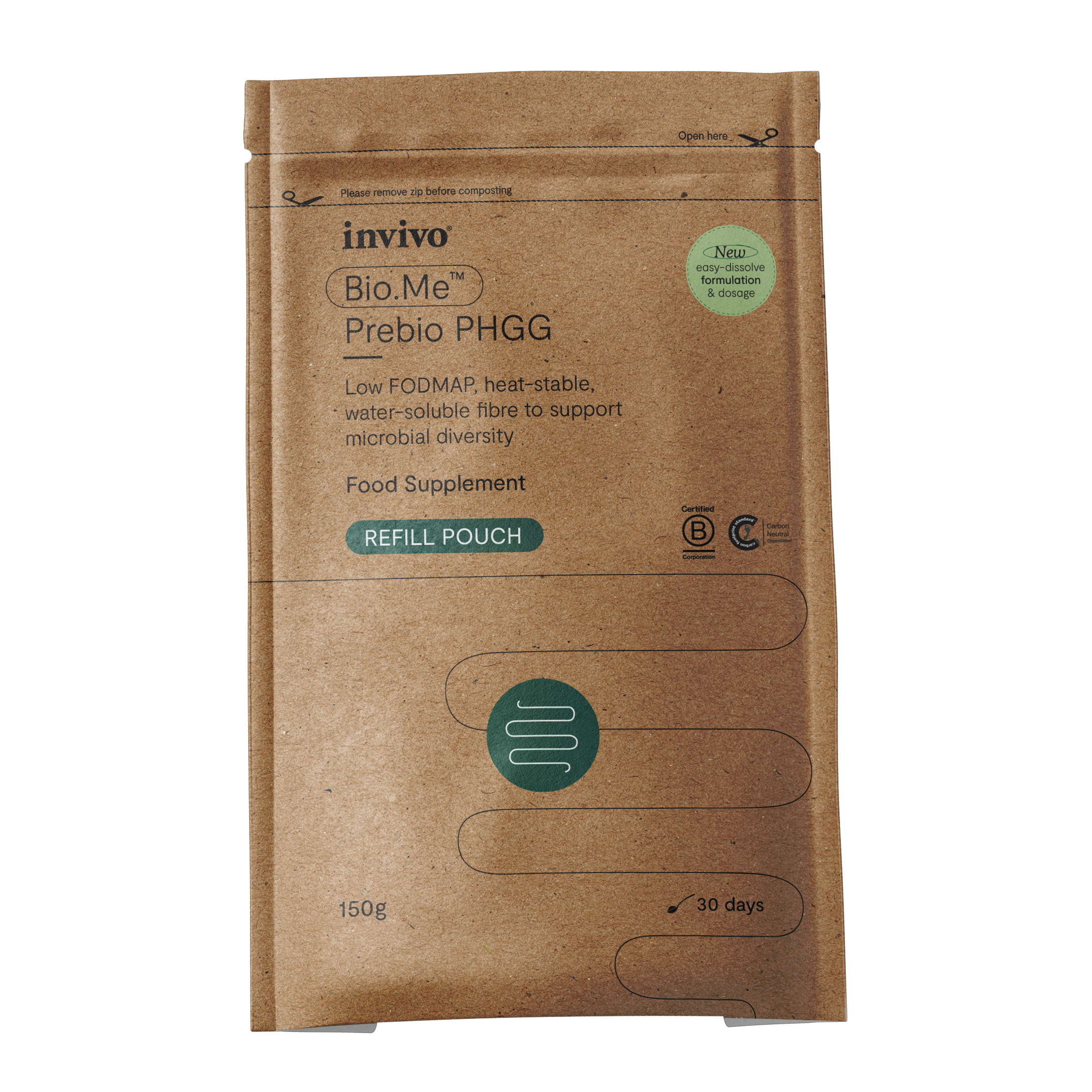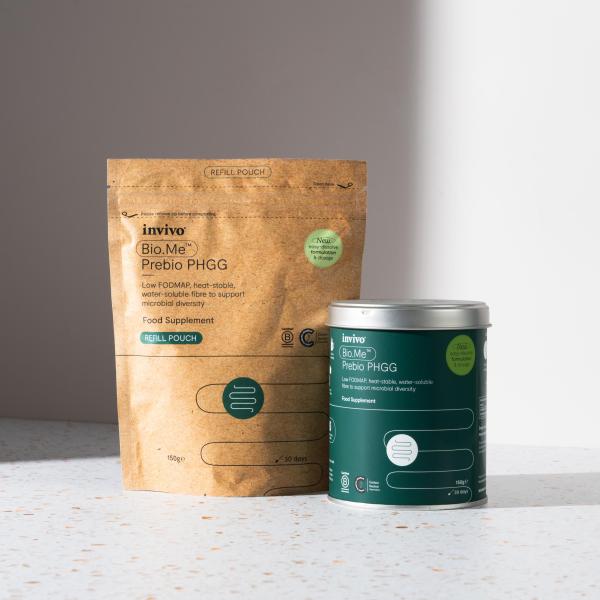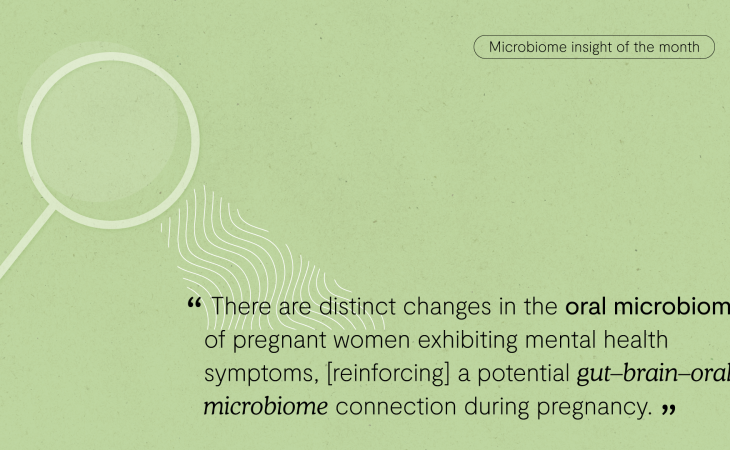Oral microbiome’s impact on mental health during pregnancy
Introduction
Good maternal mental health is vital for the well-being of both mother and infant. However, research suggests that as many as 15-20% of pregnant women worldwide experience poor mental health1. While hormones, neurotransmitters and inflammation are known to influence maternal mental health2, recent studies have also proposed that microbial ecosystems in the body may play a role3.
Several studies have explored the gut-brain axis in relation to maternal mental health, showing that live bacteria interventions can improve mental health outcomes4. However, research on the oral microbiome’s role in the mental health of pregnant or post-partum women has not yet been investigated.
This pioneering study published in BMJ Mental Health aimed to explore a potential oral- brain- behaviour axis in this population5.
How might the oral microbiome influence maternal mental health?
- Stress-induced increases in oral inflammation
- Oral microbes modifying neurotransmitter synthesis
- Oral microbes migrating to the gut, affecting the gut-brain axis
Methods
- Saliva was collected from 224 second trimester participants, oversampled for those with a risk for mental health issues
- Associations between life stress, anxiety, depression and PTSD and the oral microbiome were investigated
- Hypothesis: women with high symptoms would exhibit variations in composition and levels of oral microbes compare to those with low symptoms
Key Results
- Stress, anxiety, depression, and PTSD symptoms were strongly correlated with each other
- The most abundant bacterial families identified were:
-
- Streptococcaceae (26.2%)
-
- Prevotellaceae (20.0%)
-
- Veillonellaceae (12.0%)
- Women with high trait anxiety or depression symptoms had significantly higher oral alpha diversity (p=0.010 and p=0.025 respectively), indicating greater microbial species richness, consistent with previous research. While greater gut microbial diversity is considered beneficial, it is unclear if this applies to oral diversity, with some research suggesting this may be linked with poorer oral health6.
- Significant differences in beta diversity were observed between groups with high and low PTSD symptoms (p= 0.037 and 0.006 respectively), but not for the other symptom groups, nor did grouping participants by overall mental health status reveal meaningful differences in microbiome structure.
- Proteobacteria where more abundant in pregnant women experiencing high recent life stress, but not between groups with high or low impact of negative life events in early pregnancy, suggesting recent stress is more impactful than distal stress. Proteobacteria may cause neuroinflammation via blood-brain-barrier permeability and higher levels are positively associated with systemic inflammatory markers. Recent life stress appears to be a driver for higher Proteobacteria.
- Bacteroidetes and Firmicutes were more abundant in women with high trait anxiety, whilst Firmicutes and Spirochaetes were higher in those with depression symptoms.
- Dialister, previously found to be lower in the gut of depressed non-pregnant individuals, was higher in women experiencing high trait anxiety or high depression symptoms.
- Eikenella was elevated in women with high trait or state anxiety, depression, or PTSD symptoms.
What does this tell us?
This novel research supports the hypothesis that there are distinct changes in the oral microbiome of pregnant women exhibiting mental health symptoms. No significant microbial changes were found when grouping these symptoms together into a single variable, suggesting that each symptom was related to unique changes in specific oral bacteria. These changes were not observed in gut microbiome studies or in non-pregnant populations.
This study reinforces a potential gut–brain–oral microbiome connection during pregnancy and suggests further research is needed into how supporting the oral microbiome may improve maternal oral and mental health.
Referenced study here: https://acrobat.adobe.com/id/urn:aaid:sc:EU:47d56488-39a2-4f3f-98fc-cd9f6ec396f6




